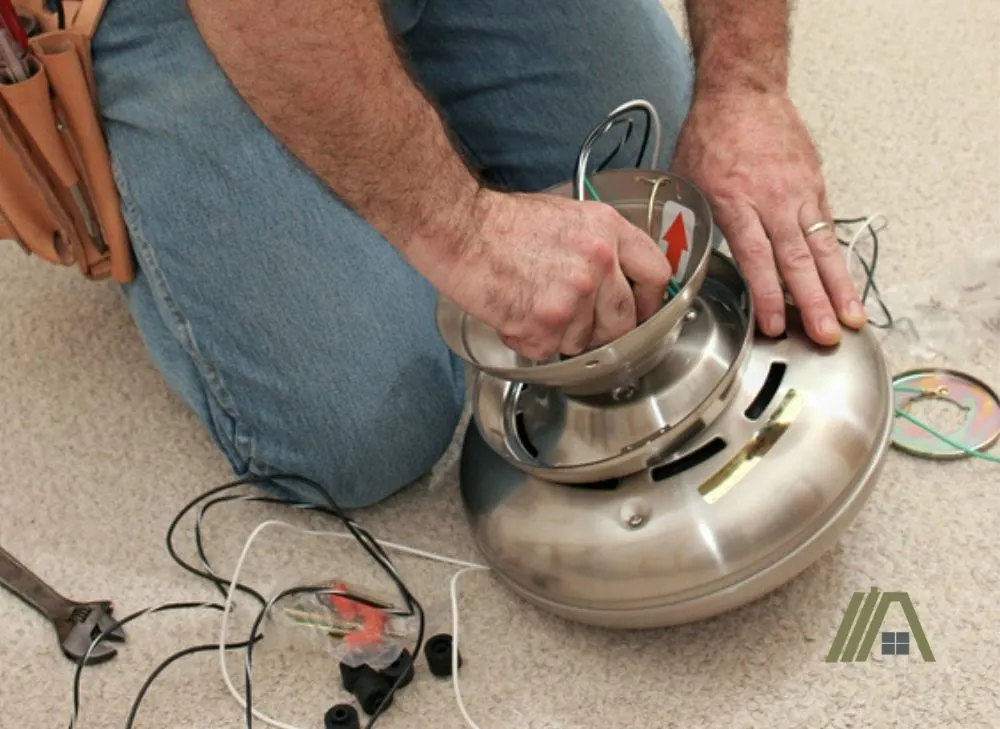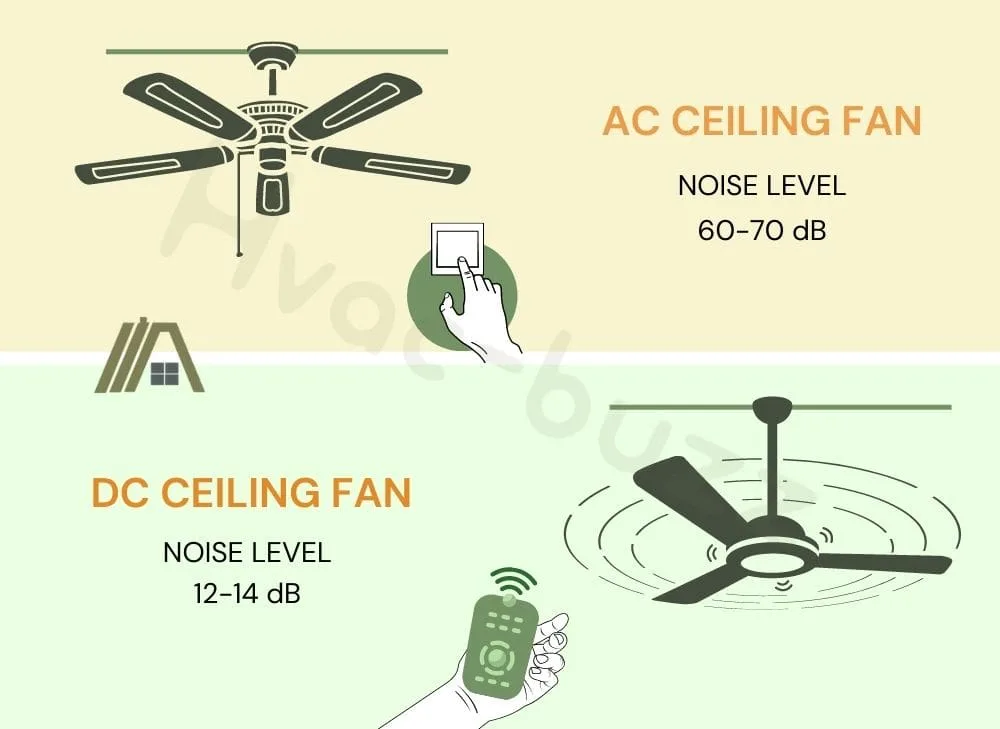A major bother when it comes to ceiling fans is the noise they make. Although noise can be a mechanical problem, noise levels can also differ by ceiling fan type.
DC motor ceiling fans have been developed to be quieter. Let’s look at what causes ceiling fan motors to be loud, how loud the different motors actually are, and why DC motors are quieter.

Moving parts, electromagnetic interference, and loose components cause ceiling fans to make noise. DC fans are typically made from better materials, so movements are smoother and quieter. Additionally, DC fans aren’t as affected by electromagnetic interference. Loose components still create noise in DC fans.
What Causes Fan Motors to Be Loud?
A ceiling fan motor contains moving parts and operates at high speeds, so noises are bound to be heard from it.

Moving parts create noise as they move over each other, bumping and scraping. These are not abnormal sounds, although they can become exaggerated if there is a problem with how the parts are moving together.
Another source of noise in a ceiling fan motor is electromagnetic interference. Electrical currents have frequency. Everything else in your house that uses electricity and produces a frequency can create electromagnetic interference for your ceiling fan, leading to a buzzing sound in the fan motor.
Other sounds can be the result of loose or rubbing parts. Such noises will get louder and louder over time if left unattended.
How Loud Are AC Ceiling Fans?
AC ceiling fans generally run at 60-70 dB, which is considered the “loudness” of normal conversation.
The sound of AC ceiling fans, or more specifically, the ability of this sound to disturb or irritate you depends on how sensitive you are to white noise. You might also find that you don’t notice it at all during the day, but at night it sounds louder and may keep sensitive sleepers up.
How Loud Are DC Ceiling Fans?
DC ceiling fans reduce the motor sound by at least 80%, so their range is about 12-14 dB. This is lower than the sound of a whisper. DC ceiling fans should not worry even the most sound-sensitive person.

What Makes DC Motors Quieter?
Newer Technology Often Means Better Quality
DC motors are seen as a new and improved technology. When manufacturers are investing in new technology, it doesn’t make sense to pair it with poor-quality materials. If the newer technology doesn’t last longer, then people won’t buy it and their profit margins plummet.
So, because DC ceiling fans use modern technology, they also tend to be built with higher quality materials. This means that the parts move together better and last longer before starting to wear down or loosen, which will produce noise.
Reduced Electromagnetic Interference
As mentioned earlier, electromagnetic interference is the result of outside frequencies interfering with the frequencies of the fan motor. The interference comes when certain frequencies interact with certain frequencies.
In AC motors, the frequency is constantly changing, so the range of frequencies is greater, increasing the change of electromagnetic interference.
DC motors are able to reduce electromagnetic interference because they do not rely on alternating frequencies and operate within a smaller frequency range. Less electromagnetic interference means that they produce less electrical buzz.
For more benefits linked to DC ceiling fans, you can read Reasons Why DC Ceiling Fans Are Better, or, for a more balanced assessment, you can read about the pros and cons of these fans.
Ceiling Fans Can Be Loud Despite Having a DC Motor
Unfortunately, there are a variety of reasons a DC ceiling fan makes noise, especially if you have cleaned it recently.
- A ceiling fan with unbalanced blades will make a grinding noise as it forces the ceiling fan into a wobble that creates friction between parts.
- A fan that hasn’t been lubricated recently may also make grinding noises as the bearings experience friction.
- Clicking noises make result from loose ceiling fan blades jostling as they spin.
- Rattling noises can result from loose components in the ceiling fan’s housing such as screws.
- Buzzing sounds would indicate electric problems, such as the wrong dimmer switch being used or loose wiring.
All of these sounds and more are problems that can be fixed, some of them being easy fixes. They are problems that plague all fans, whether they’re DC or not.
Sources
https://www.mistersparkykc.com/noisy-ceiling-fan/
http://www.comairrotron.com/emi-emc-and-umf-dc-fans
https://www.fanzartfans.com/why-do-fans-not-have-their-decibel-levels-specified-fanzart-explains/
https://www.thgelectrical.com.au/blog/ac-vs-dc-ceiling-fan#Produce_Noise_When_Running
https://www.attainablehome.com/dc-vs-ac-fans-which-is-more-eco-friendly/
https://www.orientelectric.com/blog/if-you-think-fans-have-got-to-be-noisy-think-again
https://thelightingoutlet.com.au/blogs/news/dc-vs-ac-ceiling-fans

